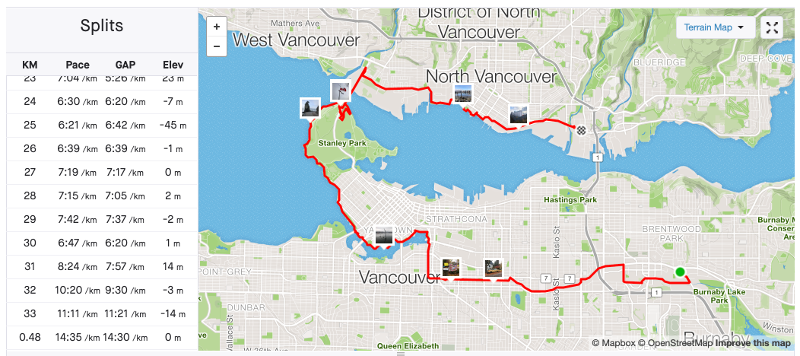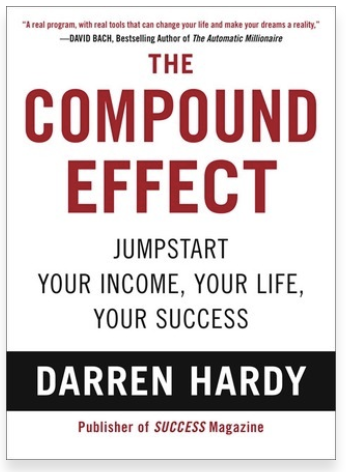January 19, 2020 Book Reviews
Not too long ago I wrote a post called “It’s all in your head: thoughts on 15 books“, since then I read few more non-technical books, which I will be covering here. Technical books are usually covered in via separate blog post, like this one on Designing Data-Intensive Applications. I don’t want to turn my blog into book reviewing site, but just listing book often helps me recall some of the interesting points, so please bear with me or just skip this post :)
Can’t Hurt Me

Out of the books in this list I liked this one the most for its story. The audiobook which I listened to on audible is compilation of narration with kind of podcast insertions and comments by the author and the narrator. This really makes the book alive, like if someone was telling you a story in person. And oh my goodness… the story is something – you get to understand that some people have nightmarish lives full of suffering and yet persevere.
The book is the inspirational autobiography of David Goggins who had horrible childhood, terrible start of his adulthood, and yet despite all the odds, he has found insane drive to accomplish unthinkable, almost inhuman things, like setting world record for pull-ups, running ultramarathons, and pushing the limits of what is though possible for human body.
Some quotes:
Everything in life is a mind game! Whenever we get swept under by life’s dramas, large and small, we are forgetting that no matter how bad the pain gets, no matter how harrowing the torture, all bad things end.
Be more than motivated, be more than driven, become literally obsessed to the point where people think you’re fucking nuts.
One of the other reasons I really liked the book is that is talks a lot about running and I like running. In fact, the book and a friend of mine motivated me to run until I exhausted myself (maybe state of mind as well), unfortunately that turned out in knee joint pain and only 33km run. Hoping to complete my loop some other time.

The Compound Effect

This book felt more like motivational rant by a training coach pushing you to build right habits and sticking to them. Not as foundational as “The Power of Habit” from the previous list I had, but way more inspiring. So if someone needs a little kick in the butt, this call for action book might work well. I don’t think it worked for me, though.
You will never change your life until you change something you do daily. The secret of your success is found in your daily routine.
Some of my thoughts on the compound effect
Some say, be 1% better than previous day, something like (1.01)^365 = ~37.78, which is ~3800% better, but I have a very serious reservation on this. Again on numbers: let’s say this is about workouts or running at which case gaining 1% actually hits the limits of human body. I took my best 10K number which is 54:59 (3299sec) – super slow when you compare to the world record of 26:17 (1577sec). Now let’s say I only do 1% improvement every day, or each other 3 day while training over 3 years, then I should be running 10K in 84 seconds with a speed 428km/h (900km/h for world record holder). Of course, this is ridiculous. My point here is that there are so many other things that do not fall under this rule. I bet that our mental capacities also have the limits as all of mental processing is built on top of physical brain. Again, each next 1% is exponentially harder to achieve.
David and Goliath

The other book I read earlier by Malcolm Gladwell was Outliers, which I remember as a really great eye-opener on explaining why some things stand out, therefore I was really happy to receive a recommendation to read another book by him.
The book wasn’t exactly what I expected, but I definitely found intriguing how we can look at well known historical stories from totally different perspective and how David’s approach has to be taken when you seem to be at complete disadvantage.
We all know the story of David and Goliath, but the truth is that there is nothing to be surprising about David winning the battle. Goliath is huge and cannot see, he cannot move quickly and range of his weapons are limited when David uses another approach, as put by the author:
[A] sling has a leather pouch with two long cords attached to it, and … a projectile, either a rock or a lead ball. … It’s not a child’s toy. It’s in fact an incredibly devastating weapon. … If you do the calculations on the ballistics, on the stopping power of the rock fired from David’s sling, it’s roughly equal to the stopping power of a [.45 caliber] handgun. This is an incredibly devastating weapon. … When David lines up … he has every intention and every expectation of being able to hit Goliath at his most vulnerable spot between his eyes.
So next time when you hear about the story don’t just think in terms of underdogs but also think in terms of underestimated but totally capable competitors.
Two more quotes:
You can’t concentrate on doing anything if you are thinking, “What’s gonna happen if it doesn’t go right?
The scholars who research happiness suggest that more money stops making people happier at a family income of around seventy-five thousand dollars a year. After that, what economists call “diminishing marginal returns” sets in. If your family makes seventy-five thousand and your neighbor makes a hundred thousand, that extra twenty-five thousand a year means that your neighbor can drive a nicer car and go out to eat slightly more often. But it doesn’t make your neighbor happier than you, or better equipped to do the thousands of small and large things.
Relentless

Found this one to be another motivational rant. Way-way too much about sports as for my taste. The quotes from the book, though, are quite motivational. But, again, as with any book like that – what matters is what you do afterwards. Not recommending this one.
How to Talk to Anyone

Not inspired to write a complete review here. The book, especially the first parts, is really helpful in understanding how some things could help you strike a good conversation with almost anyone, but it is too trickery for me. I anyway always spoil all of the good conversations at some point of time especially with people who are important to me. This post is a complete summary of the book (maybe 20 min read) and you are done: https://sivers.org/book/HowToTalkToAnyone Otherwise cannot recommend to read entire book.
Instead of conclusion
There is nothing to conclude here, I only ask you for recommendations of some good non-fictional books. Thank you so much for reading!

codemore code
~~~~